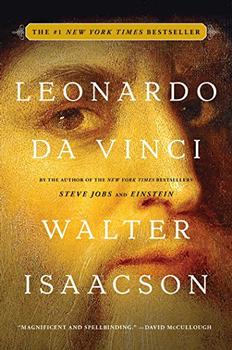Philosophy is the ancient love of wisdom, derived from the Greek word philosophia which means just that. Since the 6th century B.C., profound philosophical thinkers from ancient Greece to present day feminists have laid the foundations for modern thinking. The search for meaning in everyday life has been explored by the likes of Socrates, Descartes, and so many others whose names are easily recognized but whose foundational ideas might be more difficult to grasp.
Happily, the auction site Invaluable has created an easily digestible infographic that summarizes the guiding principles of these great philosophers--from Confucius to Simone de Beauvoir.
At BookBrowse, we believe that books are not an end in themselves but a jumping off point to new avenues of thought and discovery. This is why, every time we review one we also explore a related topic. Here is one such "beyond the book" article by Jamie Samson, originally titled "Literary Inmates" and written in conjunction with his review of Denis Johnson's The Largesse of the Sea Maiden:
Let us help you get the new year off to a great start by introducing you to five dynamic authors and their debut novels, all of which are recommended for book club discussion.
Historical fiction aficionados should check out Rebellion by Molly Patterson, set in 19th and 20th century China, and rural America. Also, The Floating World by C. Morgan Babst about Hurricane Katrina and the complicated history of New Orleans.
If your group is looking for a change from discussing "literary fiction," then how about mixing things up with a thriller? We recommend Alice Feeney's Sometimes I Lie about a woman paralyzed in a hospital with no idea how or why she got there, and Rhiannon Navin's Only Child about a six year-old boy dealing with the aftermath of a school shooting that killed nineteen of his schoolmates.
And finally, if your group enjoys chewing over contemporary stories while exploring foreign parts, we recommend Sadness is a White Bird by Moriel Rothman Zecher, a novel about family and loyalty, Israel and Palestine, and friendships that cross these lines.
At BookBrowse, we believe that books are not an end in themselves but a jumping off point to new avenues of thought and discovery. This is why, every time we review one we also explore a related topic. Here is one such "beyond the book" article by Rose Rankin, originally titled "The Education Revolution" and written in conjunction with her review of Walter Isaacson's Leonardo da Vinci:
 The term "Renaissance man" means a polymath, or someone who excels at many fields. Few people earned that moniker as brilliantly as Leonardo da Vinci, who actually lived during the height of the Italian Renaissance. Making his accomplishments even more remarkable is the fact that he didn't receive much in the way of a formal education. Leonardo was rightfully proud that he didn't "accept dusty Scholasticism or the medieval dogmas that had accumulated since the decline of classical science and original thinking," as Walter Isaacson explains in his biography of the Renaissance master.
The term "Renaissance man" means a polymath, or someone who excels at many fields. Few people earned that moniker as brilliantly as Leonardo da Vinci, who actually lived during the height of the Italian Renaissance. Making his accomplishments even more remarkable is the fact that he didn't receive much in the way of a formal education. Leonardo was rightfully proud that he didn't "accept dusty Scholasticism or the medieval dogmas that had accumulated since the decline of classical science and original thinking," as Walter Isaacson explains in his biography of the Renaissance master.
But while Leonardo himself was working and discovering, education in the Renaissance was undergoing important changes, ultimately setting the stage for the study of liberal arts that we still recognize today. The program of Scholasticism, a method of study that dominated the Middle Ages, was being swept aside as European societies re-discovered works by ancient Greeks and Romans. During the fifteenth and sixteenth centuries in Italy, this evolved into the studia humanitatis, the educational program of the Renaissance.
The studia humanitatis consisted of grammar, rhetoric, poetry, history, and moral philosophy based on the reading of classical Greek and Latin authors. In the 1400s both the texts and the purpose of education changed. Writers whose works had been lost to Europeans for centuries were re-discovered, and education became a means to self-improvement. The development of humanism and its emphasis on mankind rather than theology prepared the ground for this shift in the larger purpose of education.